Our Advisors | NFXF (original) (raw)
-
- Fragile X 101
* Fragile X 101
* Prevalence
* Signs and Symptoms
* Genetics and Inheritance
* Testing and Diagnosis - Fragile X Syndrome
* Fragile X Syndrome
* Newly Diagnosed
* Fragile X & Autism - Associated Conditions
* Premutation
* FXPOI
* FXTAS
* New Developments - Xtraordinary Individuals
- 31 Shareable Fragile X Facts
- Fragile X Info SeriesFact sheets by topic
- Fragile X MasterClass™️
- Knowledge CenterFrequently asked questions.
- Fragile X 101
-
- Resources for Families
- FXS Strategies by Topic
* Adulthood
* Autism
* Behavior
* COVID-19
* Daily Living
* Females
* Medications
* Physical & Medical Concerns
* Puberty & Sexuality
* School & Education - FXS Resources by Age
- Premutation Topics
* The Fragile X Premutation
* FXTAS Resources
* FXPOI Resources
* Reproductive Resources - Newly Diagnosed
- ResearchLearn and participate
* Research 101What is research?
* STX209 Reconsent ProjectEnrollment is open
* International Fragile X Premutation Registry — For ParticipantsEnroll now
* Participate in ResearchMyFXResearch Portal
* Original Research Articles
* FORWARD-MARCHDatabase and registry
* Research ResultsNew and archives - Find a Fragile X Clinic
* U.S. Fragile X Syndrome Clinics
* FXTAS-Specific Clinics
* International Clinics & Organizations - Find a Contact Near You
- Knowledge CenterOur Fragile X library
- Webinars & Videos
- Printable Resources
- Treatment Recommendations
-
- Resources for Professionals
- NFXF MasterClass™️ for Professionals
- Research Readiness ProgramResearch facilitation for researchers
- NFXF Data Repository
- International Fragile X Premutation Registry — Research Requests
- FORWARD-MARCHRegistry & Database
- NFXF-Led PFDD Meeting for Fragile X SyndromePatient-focused drug development
- Marketing Your Research Opportunities
- Treatment Recommendations
- Fragile X Clinics
* U.S. FXS Clinics
* FXTAS-Specific Clinics
* International Clinics & Organizations - NFXF RESEARCH AWARDS
* Randi J. Hagerman Summer Scholar Research Awards
* Junior Investigator Awards
Get
Involved-
- Fragile X 101
* Fragile X 101
* Prevalence
* Signs & Symptoms
* Genetics and Inheritance
* Testing and Diagnosis - Fragile X Syndrome
* Fragile X Syndrome
* Fragile X & Autism - Associated Conditions
* Premutation
* FXPOI
* FXTAS
* New Developments - Xtraordinary Individuals
- 31 Shareable Fragile X Facts
- Fragile X Info Series
- FRAGILE X MASTERCLASS
- Knowledge Center
- Fragile X 101
-
- Resources for Families
- FXS Strategies by Topic
* Adulthood
* Autism
* Behavior
* Daily Living
* Females
* Medications
* Physical & Medical Concerns
* Fragile X and Puberty & Sexuality
* School & Education - FXS Resources by Age
- Premutation Topics
* The Fragile X Premutation
* FXTAS Resources
* FXPOI Resources
* Reproductive Resources - Newly Diagnosed
- Research
* Research 101: What is Research?
* STX209 Reconsent Project
* International Fragile X Premutation Registry — For Participants
* Participate in Research
* Original Research Articles
* FORWARD-MARCH
* Research Results Roundup - Find a Clinic Near You
- Find a Contact Near Your
- Knowledge Center
- Webinars & Videos
- Printable Resources
- Treatment Recommendations
-
- Resources for Professionals
- NFXF MasterClass™️ for Professionals
- Research Readiness Program
- NFXF Data Repository
- International Fragile X Premutation Registry — Research Requests
- FORWARD-MARCH Registry & Database
- NFXF-Led Patient-Focused Drug Development Meeting
- Marketing Your Research Opportunities
- Treatment Recommendations
- Find a Clinic Near You
- NFXF Research Awards
* Randi J. Hagerman Summer Scholars
* Junior Investigator Awards
Our Advisors
Our AdvisorsDany Petraska2024-07-25T16:14:16-04:00
The NFXF Scientific & Clinical Advisory Committee
The NFXF’s Scientific and Clinical Advisory Committee (SCAC) is a group of clinical and research professionals who are thought leaders in the Fragile X field. Many of these professionals run Fragile X clinics or research programs, mentor aspiring Fragile X professionals, and regularly contribute to the body of knowledge of Fragile X-associated conditions. The NFXF utilizes this esteemed group to provide expert opinion and strategic oversight across NFXF programming. We are so grateful for the committee’s dedication to the Fragile X community and the NFXF!
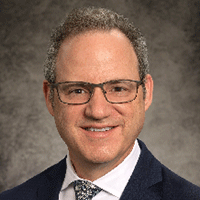
Gary Bassell, PhD
Emory University School of Medicine
Charles Howard Candler Professor and Chair, Department of Cell Biology
Professor, Department of Neurology
Dr. Bassell has enjoyed participation at NFXF conferences since 2002 and has been a Scientific and Clinical Advisory Committee member since 2009. Dr. Bassell’s laboratory has been continuously funded by the NIH since 1998. With this support, the Bassell lab has published 138 impactful and highly cited manuscripts on various topics related to neuronal mRNA biology in health and neurogenetic diseases, including 50 on FMRP and Fragile X syndrome.
Dr. Bassell’s research has been supported for many years by NIH Fragile X Centers. Dr. Bassell has trained and mentored many graduate students and postdoctoral fellows, whose research has been published in excellent journals, and they have progressed in their independent careers. His former predoctoral and postdoctoral trainees are now independent investigators working on FXS and related diseases in their own laboratories.
Dr. Bassell holds a doctorate in cell biology from the University of Massachusetts Medical School and completed a postdoctoral fellowship at the Center for Neurological Diseases of Brigham and Women’s Hospital at Harvard Medical School.

Elizabeth Berry-Kravis, MD, PhD
Rush University Medical Center, Chicago
Professor, Pediatrics, Neurological Sciences, and Biochemistry
Elizabeth Berry-Kravis established the Fragile X Clinic and Research Program at Rush University Medical Center in 1992. She studies Fragile X syndrome medical issues, epilepsy, and psychopharmacology and provides care to over 700 patients with FXS. She has been a leader in translational research, including the development of outcome measures and biomarkers, natural history studies, newborn screening, and particularly clinical trials of new targeted treatments.
Dr. Berry-Kravis’s laboratory studies the cellular roles of the Fragile X protein (FMRP), its relationship to phenotypes, and the optimization of genetic testing methods. She is a longstanding member of the NFXF Scientific and Clinical Advisory Committee, and Clinical Trials Committee, and is the principal investigator of the CDC-funded FORWARD-MARCH natural history project for Fragile X.
Dr. Berry-Kravis attended the University of Notre Dame for her undergraduate studies and the University of Chicago for her doctoral degrees (MD and PhD) and training in pediatric neurology.

Marcia L. Braden, PhD
Private Psychology Practice, Colorado Springs, CO
Psychologist
Dr. Marcia Braden is a licensed psychologist with a clinical practice in Colorado Springs, Colorado, specializing in children and adolescents. She is a former teacher with experience teaching general and special education. She has written and published numerous articles related to education and behavior management strategies, techniques, and interventions. Dr. Braden is a member of the Scientific and Clinical Advisory Committee.
Dr. Braden is the author of Fragile – Handle With Care: More About Fragile X Syndrome. She is a contributing author to Fragile X Syndrome; Diagnosis, Treatment, and Research, compiled and edited by Randi and Paul Hagerman; and Children with Fragile X Syndrome: A Parents’ Guide, edited by Jayne Dixon Weber.

Dr. Jonathan Cohen
Private Practice, Melbourne, Australia
Medical Practitioner
Dr. Jonathan Cohen is a parent and medical practitioner in private practice in Melbourne, Australia. He holds a master’s in family medicine and is an adjunct senior research fellow with the Centre for Developmental Disability Health (Victoria), Monash University Department of General Practice. He is the medical director of the Fragile X Alliance Clinic in Australia. He is involved with numerous research projects, author of multiple articles for medical, allied health journals, and the lay press, and presents regularly throughout Australasia on Fragile X syndrome.

Craig A. Erickson, MD
Cincinnati Children’s Hospital Medical Center, University of Cincinnati College of Medicine
Professor of Psychiatry
Dr. Craig Erickson is a Professor of Psychiatry at Cincinnati Children’s Hospital Medical Center and the University of Cincinnati College of Medicine-Affiliated. Dr. Erickson leads a neurodevelopmental clinical and research group focused on improving clinical care through research discovery. He is the director of the Cincinnati Fragile X Research and Treatment Center, one of the largest such programs in the world. He serves as the chair of the Clinical Trials Committee organized by the National Fragile X Foundation and is a leader in translational medicine efforts in Fragile X syndrome, autism, and related disorders. Additionally, he is the director of research in the Division of Psychiatry at Cincinnati Children’s Hospital.

Randi J. Hagerman, MD, FAAP
University of California, Davis, MIND Institute, California
Medical Director (Fragile X Clinic), Distinguished Professor in the Department of Pediatrics, Endowed Chair in Fragile X Research
Developmental pediatrician Dr. Randi J. Hagerman is a highly regarded professional within the Fragile X community. She co-founded the National Fragile X Foundation in 1984 and served on the board for 25 years. In 2009, she decided it was time to step aside and let others bring their expertise to the board, though she continues to help guide the foundation to this day.
There is no aspect of the NFXF that Randi has not helped shape. Her strength as both a clinician and researcher has informed the NFXF mission and strategic plan. She and her husband, Dr. Paul Hagerman, generously support the NFXF mission. While Randi is no longer a board member, she is active on the NFXF Scientific & Clinical Advisory Committee and the Fragile X Clinical & Research Consortium where she represents the UC Davis Medical Center’s MIND Institute as medical director of the Fragile X Clinic.
Randi continues to be a sought-after speaker and her work has expanded from Fragile X syndrome to all Fragile X-associated disorders. Randi is continually on the go as an international spokesperson for Fragile X. Fortunately, she’s only seconds away by phone when we need to call upon her for her guidance, advice, and wisdom.

Deborah Hall, MD, PhD
RUSH University Medical Center, Chicago
Adult Neurologist and Movement Disorder Specialist
Dr. Deborah Hall is an adult neurologist and movement disorder specialist at Rush University Medical Center in Chicago. She has training in genetics, epidemiology, and human subjects research. She conducts research primarily in two areas. Her work in Parkinson’s disease focuses on early interventions, such as neurotrophic factors and exercise, genetics and genomic causes of disease, and treatment for complications including falls. She also researches ataxia, specifically Fragile X-associated disorders, by investigating epidemiology, clinical features of movement and balance, and interventions. She has been National Institutes of Health–funded for the last 10 years as a primary investigator. She has a busy clinical practice focused on movement disorders within the Department of Neurological Sciences at Rush. She is the director of the FXTAS Clinic at Rush and the Movement Disorder DNA Repository within the Section of Movement Disorders at Rush.
Dr. Hall received her doctorate from Indiana University and her master’s from the University of Colorado, where she completed her residency and fellowship.

David Hessl, PhD
University of California, Davis, MIND Institute, California
Professor, Department of Psychiatry and Behavioral Sciences
David Hessl is a professor in the Department of Psychiatry and Behavioral Sciences at the University of California, Davis, where he is on the faculty of the MIND Institute. He is a licensed clinical psychologist and the head psychologist at the Fragile X Research and Treatment Center at UC Davis, where FXTAS (Fragile X-associated tremor/ataxia syndrome) was first discovered and reported in 2001.
Dr. Hessl is the director of the Translational Psychophysiology and Assessment Laboratory (T-PAL) at the MIND Institute. T-PAL is primarily devoted to the development of novel outcome measures for use in clinical trials for individuals with neurodevelopmental disorders.
Dr. Hessl’s career has focused on Fragile X-associated disorders since 1998, having published 114 peer-reviewed journal articles on these topics to date. He is a lead investigator of a program of research, supported by the National Institute of Neurological Diseases and Stroke, focused on neuropsychological and neurological changes in Fragile X premutation carriers to determine key risk factors and early signs of neurodegeneration related to FXTAS. This work has also uncovered genetic and brain mechanisms contributing to mental health challenges in premutation carriers, supported by the National Institute of Mental Health. Dr. Hessl also serves on the National Fragile X Foundation’s Clinical Trials Committee.

Heather Hipp, MD
Emory University School of Medicine, Georgia
Associate Professor
Dr. Heather Hipp is an associate professor at the Emory University School of Medicine and works at the Emory Reproductive Center caring for patients with reproductive endocrine disorders and infertility.
Dr. Hipp helped author the recent Fragile X Clinical & Research Consortium guidelines for FXPOI (Fragile X-associated primary ovarian insufficiency). Dr. Hipp is board certified in obstetrics and gynecology (OB-GYN) and reproductive endocrinology and infertility (REI). She maintains a special clinical interest in women with primary ovarian insufficiency (POI), working to care for their overall health and reproductive needs. She currently serves as the subspecialty resident educator for the REI rotation, is the program director for the REI fellowship, and is the director for the Emory Egg Bank. Dr. Hipp is also an advisor in the NFXF’s Research Readiness Program.
Dr. Hipp graduated from Duke University with double majors in biology and English and then matriculated at Emory University for her doctorate and graduated cum laude. She stayed at Emory for her residency in gynecology and obstetrics, where she served as administrative chief resident for her final year and her fellowship in reproductive endocrinology and infertility. During her fellowship in REI, she worked with Emory’s National Fragile X Center on ongoing analysis of genetic modifiers of POI in women with the Fragile X premutation.
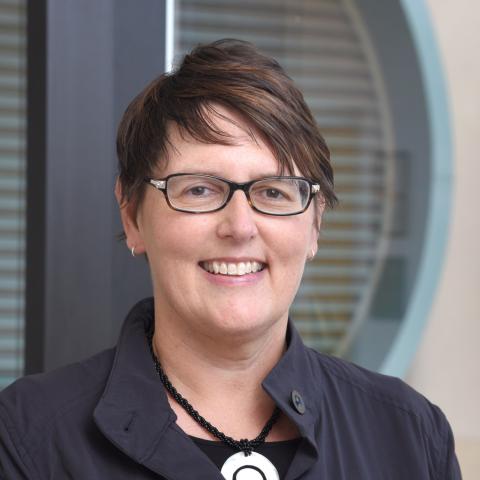
Kimberly Huber, PhD
University of Texas Southwestern Medical Center, Dallas
Professor of Neuroscience, Southwestern Medical Foundation Endowed Scholar in Biomedical Research
Dr. Kimberly Huber is a professor of neuroscience and a Southwestern Medical Foundation Endowed Scholar in biomedical research at UT Southwestern Medical Center in Dallas. Dr. Huber also codirects an NIH Collaborative Centers for Fragile X Syndrome Research with Dr. Craig Erickson.
Dr. Huber’s research focuses on the cellular and molecular mechanisms of synapse development and plasticity in the mammalian brain and the role of genes linked to human intellectual disability and autism. Dr. Huber has revealed roles for Fragile X ribonucleoprotein (FMRP), an RNA binding protein that is mutated in Fragile X syndrome, in multiple aspects of synapse and circuit function in the mouse. The Center for Fragile X Syndrome that she codirects is focused on understanding and correcting sensory cortical circuit dysfunction and associated sensory hypersensitivity. Using neurophysiological methods, her work is also engaged in the identification and testing of common neurophysiological biomarkers that translate between mouse models and humans with Fragile X syndrome.
Also see the Fragile X Syndrome Research Center.
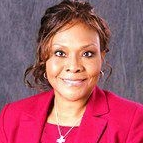
Vanessa Johnson, PhD
Nova Southeastern University, Florida
Research Specialist and Associate Professor, Dr. Pallavi Patel College of Health Care Sciences Department of Occupational Therapy
Vanessa Johnson is a research specialist and associate professor in the Dr. Pallavi Patel College of Health Care Sciences Department of Occupational Therapy. Dr. Johnson earned her master’s in human environmental sciences at Oklahoma State University, emphasizing human development and family science with a focus on assessment and early diagnosis of FMR1 gene changes. Her dissertation work explored the development of a Biopsychosocial Screening Inventory for Fragile X (BIPSSI-FX).
Dr. Johnson completed postdoctoral training at the University of Iowa, where she studied incidental findings associated with genetic testing. She collaborated with an Iowa Testing Center psychometrician to further validate the BIPSSI-FX. Dr. Johnson has researched Fragile X syndrome and autism spectrum disorders for the past 20 years. FMR1 gene changes provide an excellent paradigm for studying the multi-systemic complexity of neuropsychiatric disorders across the lifespan. Her beginning FXS-associated research was met with a commonly experienced challenge of facilitating equitable representation of diverse racial and ethnic groups in genomic research. This persistent gap consequently fueled a focus of her program of research, empowering parents as “frontline screeners” to collaborate with healthcare professionals and community leaders to facilitate earlier diagnosis and treatment of genetic developmental disabilities.
Dr. Johnson chairs the Association of Black Faculty, Inc., research committee. She also regularly serves as chair or member of CDC Scientific Review Panels for Fragile X syndrome and other autism spectrum disorders. In addition, she is the founder of EAGLES View, Inc., a community environment and engagement organization providing services for high school students and adults with intellectual, developmental, behavioral, or cognitive challenges.
Lastly, Dr. Johnson’s passionate interest in human development and behavior and a genuine belief in the necessity of empowering underserved and vulnerable community members for positive health outcomes motivate her to use an integrative, interdisciplinary approach to research and teaching. She has taught at the undergraduate and graduate levels in private and public universities for over 31 years.
Dr. Johnson serves on dissertation and capstone committees. She also teaches research and evidence-based practice courses and grant-writing courses.

Jessica Klusek, PhD, CCC-SLP
University of South Carolina
Associate Professor
Jessica Klusek is an associate professor at the University of South Carolina. Dr. Klusek received her doctorate in speech and hearing sciences from the University of North Carolina at Chapel Hill. She followed her doctoral training with an NIH-funded postdoctoral fellowship in psychology at the University of South Carolina, where she completed interdisciplinary training in physiology, psychology, and genetics. Dr. Klusek is also a certified speech-language pathologist. Dr. Klusek is also an advisor in the NFXF’s Research Readiness Program.

Frank Kooy, PhD
University of Antwerp, Belgium
Professor, Cognitive Genetics, Department of Medical Genetics
Dr. Frank Kooy is a full professor of cognitive genetics. He is the chair of the Cognitive Genetics Research Group at the Department of Medical Genetics at the University of Antwerp, Belgium. The group is part of the research excellence center GENOMED, which was recently awarded Methusalem financing, a prestigious grant for centers with exceptional past performance and future potential. Dr. Kooy has also attended many NFXF international conferences.
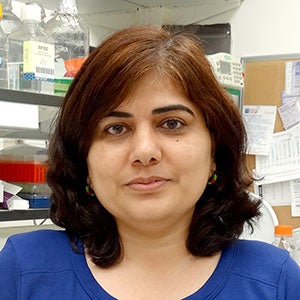
Daman Kumari, PhD
National Institute of Diabetes and Digestive and Kidney Diseases at the National Institutes of Health
Senior Associate Scientist, Gene Structure and Disease Section, Laboratory of Cell & Molecular Biology
Dr. Daman Kumari is a senior associate scientist in the Gene Structure and Disease Section of the Laboratory of Cell & Molecular Biology at the National Institute of Diabetes and Digestive and Kidney Diseases at the National Institutes of Health. She has been studying the regulation of FMR1 gene expression since 1998 and has made several important contributions to the understanding of FMR1 gene silencing in Fragile X syndrome. Dr. Kumari’s research goal is to understand the mechanism of repeat-mediated gene silencing in repeat expansion diseases and to develop and evaluate strategies to normalize transcription of the affected gene.

Reymundo Lozano, MD
Mount Sinai, Icahn School of Medicine
Assistant Professor, Department of Genetics and Genomic Sciences and Department of Pediatrics
Dr. Reymundo Lozano, an assistant professor in the Department of Genetics and Genomic Sciences and Department of Pediatrics at the Icahn School of Medicine at Mount Sinai in New York, is an adult and pediatric clinical geneticist with research training in neurodevelopmental and neurodegenerative disorders. He is the director of the Mt. Sinai Fragile X Spectrum Disorder Clinic, and as a collaborator on clinical trials in Fragile X syndrome, Dr. Lozano is committed to finding new pharmacological treatments.
Dr. Lozano enjoys working with the Fragile X syndrome and Fragile X-associated tremor/ataxia syndrome scientific and medical communities, patients, and families utilizing current and innovative treatment strategies to ameliorate patients’ medical challenges. Dr. Lozano is also a member of the NFXF board of directors and the Clinical Trials Committee.

David Nelson, PhD
Baylor College of Medicine, Houston
Professor, Molecular and Human Genetics
Dr. David Nelson is a professor of molecular and human genetics and the director of both the graduate program in cancer & cell biology and integrative molecular and biomedical sciences at Baylor College of Medicine. He is also a director of Baylor’s Michigan Emory Fragile X Research Center, an NIH-funded center aimed at understanding mechanisms whereby premutation-length CGG repeats cause neurodegenerative and ovarian disorders. The Nelson lab has been involved in research into the causes of and therapies for Fragile X syndrome since the late 1980s, contributing to the discovery of the repeat expansion mutation that results in the disorder and the gene that is affected. For over 30 years, the Nelson lab has worked to define both the characteristics of the unusual repeat expansion in the disease and the functions of FMR1, the gene that is downregulated in the disease.

Feliciano Ramos Fuentes
Universidad de Zaragoza, Spain
Professor & Director, Department of Pediatrics

Dr. Susan Rivera
University of Maryland
Professor, Psychology and Dean, College of Behavioral and Social Sciences
Dr. Susan Rivera is a professor of psychology and dean of the College of Behavioral and Social Sciences at the University of Maryland. Prior to this role, she was a professor and chair of the psychology department at the University of California, Davis, and a faculty member of the UC Davis MIND Institute and the Center for Mind and Brain.
Dr. Rivera is the editor-in-chief of the journal Human Development and is a current member of the Interagency Autism Coordinating Committee (IAAC) under the U.S. Department of Health and Human Services.
Her research investigates the interplay between genes, brain function and structure, and environment across the lifespan (from infancy to old age). Using brain imaging (EEG/ERP and functional and structural MRI) and eye-tracking techniques, she investigates research questions about how underlying brain activity and behavior support the development of skills such as attention, visual perception, face processing, and sensory processing.

Dr. Rebecca Shaffer
Cincinnati Children’s Hospital
Associate Professor
Dr. Shaffer is an associate professor of pediatrics at Cincinnati Children’s Hospital and specializes in both clinical care and research with Fragile X syndrome and autism spectrum disorder. She is also the director of psychological services for the Cincinnati Fragile X Research and Treatment Center. Her research is primarily focused on emotion dysregulation in both Fragile X syndrome and autism spectrum disorder. She enjoys helping individuals find ways to calm their bodies and minds and fully engage in the world around them. She also enjoys helping caregivers find ways to best support them in this process. She loves working with the Fragile X population and their families. Dr. Shaffer is also a member of the NFXF’s board of directors and the Clinical Trials Committee.

Tracy Murnan Stackhouse, MA, OTR
Developmental FX, Denver, CO
Co-founder, Executive Director
Tracy Murnan Stackhouse is co-founder and executive director of Developmental FX in Denver, Colorado. She is a leading pediatric occupational therapist involved in clinical treatment, research, mentoring, and training regarding OT intervention for persons with neurodevelopmental disorders, especially Fragile X syndrome and autism. Tracy has a master’s in developmental psychology/neuroscience. She received her NDT (neuro-developmental treatment) training with Lois Bly. She is SIPT (Sensory Integration and Praxis Tests) Certified and was the clinical specialist in sensory integration at the Children’s Hospital in Denver as well as the OT for the Fragile X Research and Treatment Center. Tracy continued her clinical and research work with Dr. Randi Hagerman at the UC Davis MIND Institute during its start-up year prior to starting Developmental FX.
Tracy has written several book chapters on sensory integration and neurodevelopmental disorders and teaches nationally and internationally on sensory integration, autism, Fragile X, and related topics. She is the lead author for the SpIRiT & STEPSI Clinical Reasoning Tools which are leading-edge evidence-based models in pediatric OT. Tracy is also a member of the Fragile X Clinical & Research Consortium and the NFXF Advisory Council.
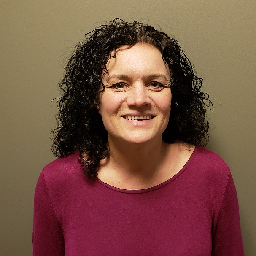
Nicole Tartaglia, MD
Children’s Hospital Colorado, Colorado School of Medicine
Developmental Pediatrics, Department of Pediatrics
Dr. Nicole Tartaglia attended university and medical school at the University of Colorado. She completed her training in general pediatrics at Children’s Hospital Los Angeles, and fellowship training in developmental-behavioral pediatrics at the University of California Davis MIND Institute, where her research focused on children and adults with developmental disabilities, chromosomal abnormalities, Fragile X syndrome, and autism spectrum disorder. She also obtained her master’s in clinical investigation from the University of Colorado Graduate School.
Since 2007, Dr. Tartaglia has worked as faculty for the Colorado School of Medicine at Children’s Hospital Colorado in the Department of Pediatrics Section of Developmental Pediatrics, where she founded and directs the eXtraordinarY Kids Clinic for children and adolescents with sex chromosome disorders, and is also the director of the Denver Fragile X Clinic. In these clinics, she leads multidisciplinary teams that include medical providers, genetic counseling, psychology, speech-language therapy, occupational therapy, nursing, and social work, and collaborates extensively with community providers, therapists, and schools to provide optimal care for these special populations. She also evaluates and treats children with general developmental delays, autism spectrum disorder, ADHD, and other neurogenetic disorders.
Dr. Tartaglia has federally funded research projects evaluating natural history and outcome measures in sex chromosome disorders and Fragile X and collaborates with national networks of clinics to develop best practices for treatments of these conditions. She is also very active in clinical trials of targeted treatment medications for neurobehavioral features and developmental disabilities. Dr. Tartaglia is also a member of the NFXF’s Clinical Trials Committee.

Flora Tassone, PhD
University of California, Davis School of Medicine
Professor, Department of Biochemistry and Molecular Medicine, MIND Institute Investigator
Dr. Flora Tassone received her bachelor’s degree in biology from the University of Rome “La Sapienza” and her master’s in molecular biology from the Catholic University of Rome, Italy, in 1992, for her studies on Down syndrome. During the postdoctoral fellowship, first at the Eleanor Roosevelt Institute in Denver, Colorado, and then at the University of Colorado Health Science Center she continued to work on the identification of genes involved in Down syndrome and started to focus her attention on the molecular basis leading to Fragile X syndrome and autism spectrum disorders.
In 2000 she moved to the University of California, Davis, and focused her research on neurodevelopmental disorders including Fragile X syndrome and associated disorders, autism spectrum disorders, and 22q deletion syndrome. She is a professor in the Department of Biochemistry and Molecular Medicine, and a MIND Institute investigator at the University of California, Davis, School of Medicine. The main focus of Dr. Tassone’s research is to understand the molecular mechanisms and the correlation with clinical involvements of neurodevelopmental and neurodegenerative disorders. Her expertise is in transcriptional and translational gene regulation, particularly of the Fragile X (FMR1) gene. Dr. Tassone is also a member of the NFXF’s Clinical Trials Committee and an advisor in the Research Readiness Program.

Peter K. Todd, MD, PhD
University of Michigan Medical School
Professor, Department of Neurology
Dr. Peter Todd is the Bucky and Patti Harris Professor in the Department of Neurology at the University of Michigan Medical School. As a clinician, Dr. Todd co-directs Michigan University’s Multidisciplinary Ataxia Clinic where he sees patients with FXTAS (Fragile X-associated tremor/ataxia syndrome), and the Fragile X Syndrome Clinic where he sees adult patients with Fragile X syndrome. He also serves as director of the Clinical Neurogenetics Research Program, which aims to improve research and care for patients with inherited neurological disorders.
As a physician-scientist, the Peter Todd Lab studies the mechanisms by which nucleotide repeat expansions cause neurodevelopmental and neurodegenerative disorders with a long-term goal of developing novel therapeutics for currently untreatable conditions. His lab has published extensively on Fragile X-associated disorders, such as Fragile X syndrome and FXTAS, as well as C9orf72 repeat expansions that cause ALS (amyotrophic lateral sclerosis, or Lou Gehrig’s disease) and frontotemporal dementia.
In the past decade, Dr. Todd has given over 80 invited presentations across the world and published over 50 papers on his research.

Dr. Karen Usdin
National Institute of Diabetes and Digestive and Kidney Diseases at the National Institutes of Health, Bethesda, MD
Section Chief, Gene Structure and Disease Section; Deputy Chief, Laboratory of Cell & Molecular Biology
Dr. Karen Usdin is the deputy chief of the Laboratory of Cell & Molecular Biology and the section chief of the Gene Structure and Disease Section Laboratory of Cell & Molecular Biology within the National Institute of Diabetes and Digestive and Kidney Diseases (NIDDK) at the National Institutes of Health (NIH). Dr. Usdin’s work focuses on repeat expansion diseases, including FMR1-related disorders (a.k.a. Fragile X–related disorders), Friedreich ataxia, and Glutaminase deficiency disorder. The Usdin lab is interested in the mechanism responsible for the unusual mutation that causes these diseases as well as the consequences of these mutations.
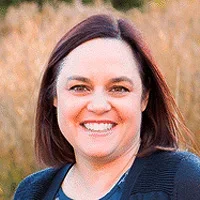
Dr. Vicki Wilkins
University of Utah
Pediatric Hospitalist
Dr. Wilkins is a pediatric hospitalist at the University of Utah who specializes in provider-family communication, experience of care, and care for children with complex healthcare conditions. She has a son with Fragile X syndrome and has therefore developed a Fragile X practice and research portfolio. She trains and coaches physicians, nurses, and other healthcare providers in engaging in difficult conversations, conflict resolution, disclosure and resolution of adverse events, and shared decision-making. She is the medical director of experience of care at Primary Children’s Hospital in Salt Lake City, Utah. Dr. Wilkins is also an NFXF board member.
Emeritus Advisors

Len Abbeduto, PhD
UC Davis MIND Institute, Sacramento, California
Leonard Abbeduto is the director of the MIND Institute, the Tsakopoulos-Vismara Endowed Chair, and a professor of psychiatry and behavioral sciences at the University of California, Davis. Dr. Abbeduto’s research is focused broadly on the development of language across the lifespan in individuals with neurodevelopmental disorders and the family context for language development.
Dr. Abbeduto has published more than 190 articles, chapters, reviews, and books on Fragile X syndrome, autism, Down syndrome, intellectual disabilities, and child development. His program of research has been funded nearly continuously by NIH since 1985. His current research is focused on understanding variation in language outcomes in various neurodevelopmental disorders, the measurement of treatment effects in clinical trials, and the use of distance technology in behavioral treatment. He serves as PI/PD of the NICHD-funded MIND Institute Intellectual and Developmental Disabilities Research Center, which provides core support to more than 70 projects and 40 scientists at the UC Davis MIND Institute.

Harris Hollin
Harris enlisted during the Korean War and served as an Army combat officer earning a Bronze Star. He owned Lemmon Pharmaceuticals, now part of TEVA Pharmaceuticals. He is a Fragile X grandfather and founded the Conquer Fragile X Research Foundation, now part of NFXF, which supported Fragile X research in many countries across Europe and Asia. (Pictured: Mr. and Mrs. Hollin.)

Gene Koelbel
As a leader of the Sewall Child Development Center in Denver, Colorado, Gene Koelbel was instrumental in the early success of the National Fragile X Foundation through her support of and collaboration with Dr. Randi Hagerman in the early 1980s. Along with her husband, Walt, Gene provided crucial financial support for early Fragile X syndrome screening.
She served on the NFXF board of directors throughout the 1980s and 1990s. She and her husband’s financial support of the NFXF in 1999 was crucial to its successful transition from a very small and poorly staffed organization to the much larger and effective organization of today. Gene also stepped forward to provide major financial support for the NFXF’s 25th-anniversary campaign in 2009.

Andrew Levitas, MD
Dr. Andrew Levitas is a retired professor of psychiatry and medical director of the Center of Excellence for Mental Health Treatment for Persons with Intellectual Disabilities and Autism Spectrum Disorders of the Department of Psychiatry, Rowan University-SOM. He is a 1972 graduate of the Albert Einstein College of Medicine, Bronx, New York, did his medical internship at Montefiore Hospital, Bronx, New York (1972-73), his residency in psychiatry at Downstate/Kings County Hospital Center, Brooklyn, New York (1973-75), and his Fellowship in Child Psychiatry at the University of Colorado Health Sciences Center, Denver, Colorado (1975-77), where he worked closely with the Denver Children’s Hospital Developmental Evaluation Clinic. He continued to work with the Developmental Evaluation Clinic and maintained a private practice in Denver specializing in psychiatric issues in persons with intellectual disabilities and autism spectrum disorders, where he was involved with the earliest work on Fragile X syndrome in the early 1980s.
Dr. Levitas was a member of the Volunteer Faculty of the University of Colorado Health Sciences Center (1978-86). In 1988 he returned to the East as medical director of the Division for the Prevention and Treatment of Developmental Disorders, Department of Psychiatry, University of Medicine and Dentistry of New Jersey-School of Osteopathic Medicine, Stratford, NJ, which in 2008 became the Center of Excellence for the Mental Health Treatment of Persons with Intellectual Disabilities and Autism Spectrum Disorders. The Center of Excellence continued as part of the Department of Psychiatry of Rowan University-SOM in Stratford, New Jersey when it devolved into its component regional parts. He retired in 2017.
Dr. Levitas is board certified in both psychiatry and child psychiatry. Dr. Levitas continues teaching and maintains a research interest in autism spectrum disorders especially as they relate to Fragile X and other intellectual disabilities syndromes, as well as other behavioral phenotype issues.